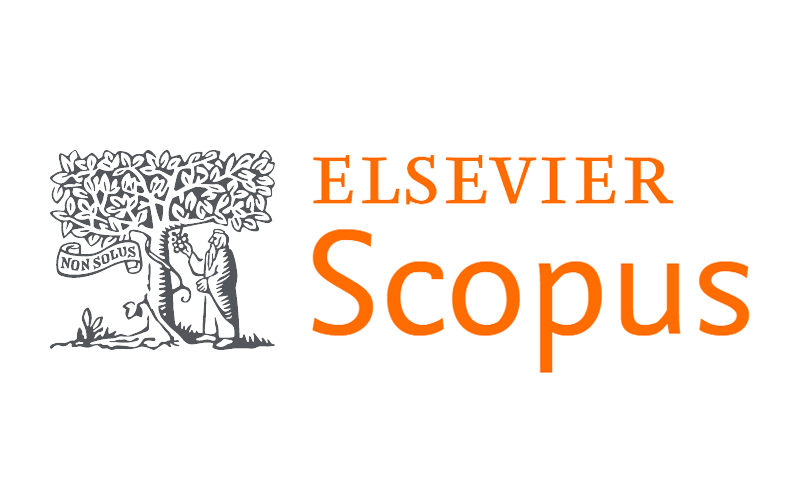Streamlining regulatory processes for health researchers: To what extent does POPIA apply?
DOI:
https://doi.org/10.7196/SAMJ.2023.v113i8.781Keywords:
Health Research, POPIA, National Health Act, ConsentAbstract
Personal information in health research commands utmost protection while also preserving the growth of health research. This paper aims to establish which legislation applies when processing personal information for health research. South Africa regulates health research on human subjects through a network of Human Research Ethics Committees. The Protection of Personal Information Act No. 4 of 2013 (POPIA) has recently come into force. Section 2(3)(b) of POPIA provides that POPIA does not apply where other legislation creates ‘more extensive’ conditions for the lawful processing of personal information than Chapter 3 of POPIA does. We show that the provisions of the sectoral legislation on health are more extensive than the conditions in Chapter 3 of POPIA and hence the sectoral legislation prevails. This simplifies the regulation of health research. One of the implications of this finding is that the definition of broad consent in the sectoral legislation for health research should be applied to the exclusion of the consent provisions in POPIA.
References
South Africa. Protection of Personal Information Act No. 4 of 2013. https://www.justice.gov.za/
inforeg/docs/InfoRegSA-POPIA-act2013-004.pdf (accessed 6 April 2022).
South Africa. National Health Act No. 61 of 2003. https://www.gov.za/sites/default/files/
gcisdocument/201409/a61-03.pdf (accessed 13 June 2022).
National Department of Health, South Africa. Ethics in health research: Principles, processes and
structures. 2nd ed. Pretoria: NDoH, 2015. https://www.ru.ac.za/media/rhodesuniversity/content/
ethics/documents/nationalguidelines/DOH_(2015)_Ethics_in_health_research_Principles,_
processes_and_structures.pdf (accessed 9 June 2022).
South Africa. Health Professions Act No. 56 of 1974. https://www.hpcsa.co.za/Uploads/legal_and_
regulatory_affairs/legislation/health_professions_ct_56_1974.pdf (accessed 29 June 2023).
Health Professions Council of South Africa. Guidelines for good practice in the health care professions:
General ethical guidelines for health researchers. Booklet 13. Pretoria: HPCSA, 2016. https://www.
hpcsa.co.za/Uploads/professional_practice/ethics/Booklet_13_Gen_Ethical_Guidelines_for_Health_
Researchers.pdf (accessed 16 May 2022).
Health Professions Council of South Africa. Guidelines for good practice in the health care professions:
Guidelines on the keeping of patient records. Booklet 9. Pretoria: HPCSA, 2016. https://www.hpcsa.
co.za/Uploads/professional_practice/ethics/Booklet_9_Keeping_of_Patient_Records_Review%20
Draft_vSept_2022.pdf (accessed 16 May 2022).
South African Medical Research Council. South African Medical Research Council guidelines on the
responsible conduct of research. 2018. https://www.samrc.ac.za/sites/default/files/attachments/2022-12/
ResponsibleConductResearchGuidelines.pdf (accessed 29 June 2023).
South Africa. National Health Act 61 of 2003. Material Transfer Agreement of Human Biological
Materials. Government Gazette No. 41781:719. 20 July 2018. Section 6. https://www.gov.za/sites/
default/files/41781_gon719.pdf (accessed 12 May 2022).
Cambridge Advanced Learner’s Dictionary. https://www.google.com/url?sa=i&rct=j&q=&esrc=s&s
ource=web&cd=&ved=0CAQQw7AJahcKEwiAv_rO2PH8AhUAAAAAHQAAAAAQAg&url=http
s%3A%2F%2Fdictionary.cambridge.org%2Fdictionary%2Fenglish%2Fextensive&psig=AOvVaw04
Da2_uuxopCWuvMgSM4FB&ust=1675250500019420 (accessed 11 October 2022).
Sinclair JM. Collins English Dictionary. 12th ed. London: HarperCollins Publishers, 2011. https://
www.google.com/url?sa=i&rct=j&q=&esrc=s&source=web&cd=&ved=0CAQQw7AJahcKEwiAv_rO
PH8AhUAAAAAHQAAAAAQBg&url=https%3A%2F%2Fwww.collinsdictionary.com%2Fdictiona
ry%2Fenglish%2Fextensive&psig=AOvVaw04Da2_uuxopCWuvMgSM4FB&ust=1675250500019420
(accessed 11 October 2022).
Sinclair JM. Collins English Dictionary. 4thed. London: HarperCollins Publishers, 2018. https://www. collinsdictionary.com/dictionary/english/extensive (accessed 11 October 2022).
Dictionary.com. https://www.dictionary.com/browse/extensive (accessed 11 October 2022).
Le Roux W, Colyn P. The disclosure of private personal information of a person is restricted in terms of section 36 of the OHASA. In: Le Roux W, Colyn P, eds. Occupational Health and Safety Law. Johannesburg: LexisNexis, 2022. https://www.mylexisnexis.co.za/Index.aspx?permalink=T0hTTCAxMy4yLjUkNzYzMDk5NyQ3JExpYnJhcnkkSkQkTGlicmFyeQ (accessed
October 2022).
Bronstein V. Prioritizing command-and-control over collaborative governance: The role of the information regulator under the Protection of Personal Information Act. Potchefstroom Electronic Law J 2022;25:1-41. https://doi.org/10.17159/1727-3781/2022/v25i0a11661
Bronstein V. Reconciling regulation or confronting inconsistency? Conflict between national and provincial legislation. S Afr J Hum Rights 2006;22(2):283-300. (On comparative law of pre-emption generally also see references cited therein.) https://doi.org/10.1080/19962126.2006.11864891
Thaldar DW, Townsend BA. Exempting health research from the consent provisions of POPIA. Potchefstroom Electronic Law J 2021;24:1-32. https://doi.org/10.17159/1727-3781/2021/
v24i0a10420
Staunton C, Adams R, Botes M, et al. Safeguarding the future of genomic research in South Africa: Broad consent and the Protection of Personal Information Act No. 4 of 2013. S Afr Med J 2019;109(7):468-470. https://doi.org/10.7196/SAMJ.2019.v109i7.14148
Thaldar DW, Townsend B. Genomic research and privacy: A response to Staunton et al. S Afr Med J 2020;110(3):172-174. https://doi.org/10.7196/SAMJ.2020.v110i3.14431
Downloads
Published
Issue
Section
License
Copyright (c) 2023 Prof, Daphine Nyachowe

This work is licensed under a Creative Commons Attribution-NonCommercial 4.0 International License.
Licensing Information
The SAMJ is published under an Attribution-Non Commercial International Creative Commons Attribution (CC-BY-NC 4.0) License. Under this license, authors agree to make articles available to users, without permission or fees, for any lawful, non-commercial purpose. Users may read, copy, or re-use published content as long as the author and original place of publication are properly cited.
Exceptions to this license model is allowed for UKRI and research funded by organisations requiring that research be published open-access without embargo, under a CC-BY licence. As per the journals archiving policy, authors are permitted to self-archive the author-accepted manuscript (AAM) in a repository.
Publishing Rights
Authors grant the Publisher the exclusive right to publish, display, reproduce and/or distribute the Work in print and electronic format and in any medium known or hereafter developed, including for commercial use. The Author also agrees that the Publisher may retain in print or electronic format more than one copy of the Work for the purpose of preservation, security and back-up.





